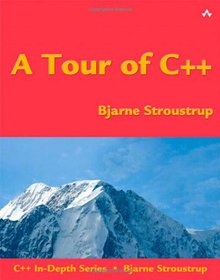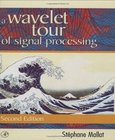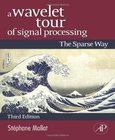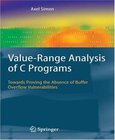A Tour of C++

Book Details:
| Publisher: | Addison-Wesley Professional |
| Series: | Addison Wesley |
| Author: | Bjarne Stroustrup |
| Edition: | 1 |
| ISBN-10: | 0321958314 |
| ISBN-13: | 9780321958310 |
| Pages: | 192 |
| Published: | Oct 03 2013 |
| Posted: | Nov 19 2014 |
| Language: | English |
| Book format: | |
| Book size: | 0.83 MB |
Book Description:
The C++11 standard allows programmers to express ideas more clearly, simply, and directly, and to write faster, more efficient code. Bjarne Stroustrup, the designer and original implementer of C++, thoroughly covers the details of this language and its use in his definitive reference, The C++ Programming Language, Fourth Edition. In A Tour of C++ , Stroustrup excerpts the overview chapters from that complete reference, expanding and enhancing them to give an experienced programmerin just a few hoursa clear idea of what constitutes modern C++. In this concise, self-contained guide, Stroustrup covers most major language features and the major standard-library componentsnot, of course, in great depth, but to a level that gives programmers a meaningful overview of the language, some key examples, and practical help in getting started. Stroustrup presents the C++ features in the context of the programming styles they support, such as object-oriented and generic programming. His tour is remarkably comprehensive. Coverage begins with the basics, then ranges widely through more advanced topics, including many that are new in C++11, such as move semantics, uniform initialization, lambda expressions, improved containers, random numbers, and concurrency. The tour ends with a discussion of the design and evolution of C++ and the extensions added for C++11. This guide does not aim to teach you how to program (see Stroustrup's Programming: Principles and Practice Using C++ for that); nor will it be the only resource you'll need for C++ mastery (see Stroustrup's The C++ Programming Language, Fourth Edition, for that). If, however, you are a C or C++ programmer wanting greater familiarity with the current C++ language, or a programmer versed in another language wishing to gain an accurate picture of the nature and benefits of modern C++, you can't find a shorter or simpler introduction than this tour provides.
Download Link:
Related Books:
A Wavelet Tour of Signal Processing
2nd Edition
This book is intended to serve as an invaluable reference for anyone concerned with the application of wavelets to signal processing. It has evolved from material used to teach "wavelet signal processing" courses in electrical engineering departments at Massachusetts Institute of Technology and Tel Aviv University, as well as applied mathematics departments at the Courant Institute of New York University and colePolytechnique in Paris. Key Features* Provides a broad perspective on the principles and applications of transient signal processing with wavelets* Emphasizes intuitive understanding, while providing the mathematical foundations and d...
A Wavelet Tour of Signal Processing
The Sparse Way
3rd Edition
Mallat's book is the undisputed reference in this field - it is the only one that covers the essential material in such breadth and depth. - Laurent Demanet, Stanford UniversityThe new edition of this classic book gives all the major concepts, techniques and applications of sparse representation, reflecting the key role the subject plays in today's signal processing. The book clearly presents the standard representations with Fourier, wavelet and time-frequency transforms, and the construction of orthogonal bases with fast algorithms. The central concept of sparsity is explained and applied to signal compression, noise reduction, and inverse problems, ...
Value-Range Analysis of C Programs
Towards Proving the Absence of Buffer Overflow Vulnerabilities
Value-Range Analysis of C Programs describes a static analysis for detecting buffer overflows. A buffer overflow in a C program occurs when input is read into a memory buffer whose length exceeds that of the buffer. Overflows usually lead to crashes and may even enable a malicious person to gain control over a computer system. They are recognised as one of the most widespread forms of computer vulnerability. Based on the analysis of a standard mail-forwarding program, necessary refinements of the basic analysis are examined, thereby paving the way for an analysis that is precise enough to prove the absence of buffer overflows in legacy C code....
2007 - 2021 © eBooks-IT.org



